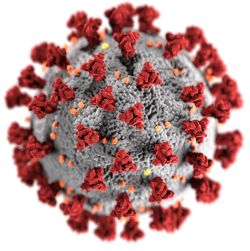COVID-19: Surveillance and Personal Privacy
Overview:
The unprecedentedly pervasive and deadly nature of the COVID-19 pandemic has led to an equally unprecedented expansion of public health surveillance. Such expansion is primarily geared toward technological advances, such as tracking apps, as preventative measures in combating the virus’ spread. Though seemingly implemented with the best of intentions – i.e. for the benefit of the population at large against a deadly, globe-spanning disease – the increased technological surveillance proposed and/or implemented by various governments have raised legal and ethical concerns over the breach of personal liberties, namely privacy. For many, the governmental overreach inherent in such surveillance undermines individual, inalienable human rights (namely privacy of information) that are fundamental to our democratic society.
Preliminary Discussion Questions:
- Do you think that the collective good provided by increased technological COVID-19 surveillance supersedes certain privacy rights? Why or why not? What moral obligation do you feel you have toward your community and how far does it extend?
- Personally invasive security measures have been a regular facet of contemporary society due to increased attention toward public safety. What circumstances would allow for you to comfortably forfeit certain personal liberties, e.g. privacy of information, for the sake of public safety (if you ever would)? If no such situation exists, why not?
Part I: Tracking Apps / Contact Tracing

To counter the spread of the COVID-19 virus, several governments and organizations across the globe have proposed and/or introduced new methods of technological surveillance. The World Health Organization has implemented enhanced surveillance tactics through wearable technologies, such as bracelets or watches, which allow public health authorities to gauge people’s temperatures and/or other indicators of potential COVID-19 symptoms; The United States and China have enlisted the aid of advanced, QR-code-carrying drones, capable of monitoring the temperature, heart rate, respiratory abnormalities of, and distance between individuals; Russia has implemented artificial-intelligence facial-recognition software, connected to a nationwide network/camera system, allowing authorities to identify, locate, and apprehend individuals in violation of quarantine/social distancing protocols within a 30-minute window; and Taiwan has created a geofencing system, alerting authorities if cell phone users stray beyond designated quarantine zones, as well as if individuals’ devices have been turned off or drained of battery life.
Questions for Part I
- What are your thoughts on the progressions of these digital tools that have made modern contact tracing possible? Is the safety gained by the implementation of technology worth the ethical loss of personal liberties? Why or why not?
- While much of the more extreme forms of surveillance listed above (i.e. A.I. facial recognition, geofencing, etc.) have not taken root in the United States, many local and state governments have pushed for more advanced surveillance technologies. Cities in New Jersey and Connecticut have successfully secured drones with automated voice messages to enforce social distancing protocols. How are/aren’t the nature of these technologies characteristic of a democratic republic?
- What more ethically acceptable alternatives, if any, could governments implement to help track and maintain the spread of COVID-19?
Part II: Discrimination
Ethical questions have arisen regarding a correlation between increased COVID-19 surveillance and discriminatory abuses of said surveillance. According to the Health and Human Rights Journal, minority groups are at a particularly high risk of incurring infringements of personal privacy during periods of heightened governmental security. Examples of such are cited as early as the eugenics laws of Nazi Germany during World War II, justified as state-healing public health measures; and as late as homophobic abuse targeted at members of the LGBTQ community in South Korea as a result of contact tracing for COVID-19 outbreaks. Despite this not being the intended outcome, many argue that such mistreatment is characteristic of overzealous technological surveillance.
Questions for Part II:
- Courts in South Korea are known for their refusal to recognize same-sex partnerships, leading many to believe that COVID-19 protocols have served to radically aid systemic abuses of the LGBTQ community in the country. For example, as part of contact tracing efforts, the government has released detailed information including age, gender, and workplace. How could increased surveillance be used as a tool to perpetuate systemic social prejudices? How might governments more ethically balance the competing needs of contact tracing and privacy?
- Existing ethical frameworks for public health interventions require evaluation for policies that restrict individual liberty. Two of those questions for evaluation include, “Are the benefits and risks of the public health intervention equitably distributed?” and “Is the intervention the least restrictive alternative for achieving the public health goal?” (Lo and Sim, 2021). How might we assess contract tracing in light of these ethical standards?
Special Thanks to Strong Style Coffee and the continued support of SOPHIA and the Douglas and Isabelle Crocker Center for Civic Engagement.
Eric Bielakiewicz, Grace Bowen, Ryan Esteves, Jack Harney
Dr. J.J. Sylvia’s Communication Law and Ethics Course
Figure 2: A picture of the COVID-19 disease, as seen under a microscope. CC0 1.0 Universal (CC0 1.0) Public Domain Dedication

